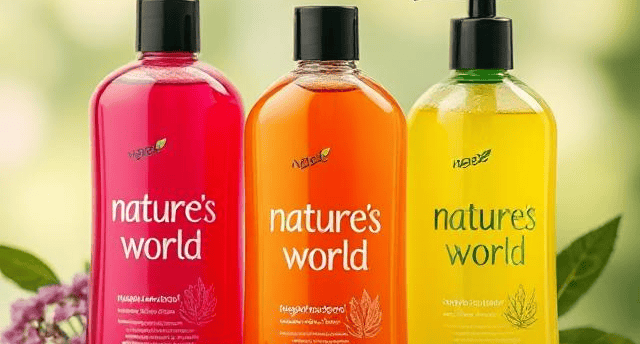A PROUDLY CANADIAN BUSINESS
Labels That Work as Hard as You Do!
The Power of Pressure-Sensitive Labels
4/25/20253 min read


Let’s dive deeper into the key benefits of Pressure-Sensitive Labels to highlight how they can elevate both your branding and operational processes:
1. Ease of Application
Pressure-sensitive labels are extremely user-friendly, making them ideal for both manual and automated applications. Unlike other labeling methods, such as heat transfer or water-based adhesive labels, pressure-sensitive labels eliminate the need for complicated machinery or additional steps. This means that you can quickly apply labels without delays or downtime. The easy application process also reduces labor costs and errors associated with more complex labeling methods. Whether you are applying them by hand or through an automated system, the process is seamless.
2. Versatility in Materials and Finishes
One of the standout advantages of pressure-sensitive labels is their versatility in terms of materials, finishes, and custom shapes. These labels can be made from a variety of substrates such as paper, BOPP (Biaxially-Oriented Polypropylene), vinyl, and even fabric. This means you can tailor the label to your specific product’s needs. For example, you can choose a waterproof BOPP label for beverages or an eco-friendly paper label for sustainable products.
The finishes are also highly customizable. Whether you want a glossy finish to make your design pop, a matte finish for a sophisticated look, or a clear transparent label to showcase the product inside, the possibilities are endless. You can also experiment with different textures (such as embossed or linen finishes) to create a more tactile experience for the customer.
3. Durability for Various Environments
Pressure-sensitive labels are built to withstand a variety of environments, making them suitable for both short and long-term applications. These labels offer excellent resistance to wear and tear, exposure to moisture, UV light, heat, and even chemicals. For example, vinyl pressure-sensitive labels are commonly used in outdoor applications such as on machinery, vehicles, or product packaging that will be exposed to harsh conditions. BOPP labels are often used in the food and beverage industry because of their resistance to moisture and oils.
4. Cost-Effective Solution
Pressure-sensitive labels are not only efficient but also cost-effective, especially when you consider their versatility and durability. The process of creating these labels is relatively simple and requires less specialized equipment compared to other forms of labeling. This keeps production costs low and allows you to produce high-quality labels in both small and large quantities. Furthermore, because these labels are easy to apply and can be done in-house, you save on additional labor and machinery costs that may be necessary for other types of labeling.
5. Customizability for Branding
A key advantage of pressure-sensitive labels is the ability to fully customize them to match your brand identity. The wide range of printing options available allows you to incorporate high-quality graphics, vivid colors, logos, and typography that resonate with your audience. Whether you're designing labels for premium products or everyday items, these labels can help you create a lasting impression.
Moreover, custom shapes and sizes provide the flexibility to align with your product packaging perfectly. With pressure-sensitive labels, you have full control over the design, ensuring that your brand stands out on the shelf or in transit.
6. Clean Application and Professional Appearance
Pressure-sensitive labels are designed to provide a smooth, clean application without adhesive residue or mess. The adhesive is applied to the back of the label, ensuring a neat, professional finish that maintains the integrity of your product packaging. This results in a pristine, polished look that enhances your brand's image. For businesses, maintaining a clean and professional appearance is essential to building trust with customers, and pressure-sensitive labels deliver that consistently.
7. Environmental Options
Many pressure-sensitive labels are now made with eco-friendly materials and sustainable adhesives, offering businesses a way to label products without compromising on environmental responsibility. For example, you can choose paper-based labels with water-based adhesives that are biodegradable or recyclable. This is a great option for brands that want to show commitment to sustainability while still using high-quality labeling solutions.
8. Flexibility for Various Industries
Pressure-sensitive labels are used across a wide array of industries, including food and beverage, cosmetics, retail, healthcare, logistics, and more. In the food industry, they are commonly used for product packaging, with a particular emphasis on freshness and shelf appeal. In the cosmetics and personal care sector, pressure-sensitive labels help convey a sense of luxury while ensuring durability against oils and creams. They are also widely used in the retail industry for price tags, product descriptions, and inventory management.
Applications of Pressure-Sensitive Labels:
Food & Beverage: Waterproof and resistant to oils, ideal for bottles, cans, jars, and cartons.
Cosmetics: Custom shapes and finishes that complement premium packaging.
Retail: Price tags, product labels, and promotional stickers that need to stick to various materials.
Automotive: Durable labels for equipment, parts, and vehicles that need to endure outdoor elements.
Healthcare: Used for medical supplies, pharmaceuticals, and health-related products, ensuring compliance and durability.
In summary, pressure-sensitive labels provide a versatile, durable, and cost-effective solution for labeling products across numerous industries. Their ease of use, customization options, and ability to withstand a variety of conditions make them an ideal choice for businesses looking to create strong brand identities and ensure long-lasting product presentation.
